Search Results
Viewing: 1-10 of 171 | All

Blog
Eating Disorder Myths
Eating disorders, which include anorexia nervosa, bulimia nervosa, binge eating disorder, avoidant restrictive food intake disorder, and other specified feeding and eating disorder, are very serious conditions that have the second highest mortality rate of any psychiatric illness.

Blog
Eating Disorders in Adolescent Boys
Reports of eating disorders in males dates back as far as reports of female patients with eating disorders, and in the United States alone, eating disorders will affect 6.6 million males at some point in their lives.

Blog
The Warning Signs of Eating Disorders
Eating disorders look differently in every patient, which can make early detection tricky; however, there are some themes that unite youth with eating disorders that I would like to share.

Blog
Eating Disorders: Awareness is the First Step
As the medical director of Nationwide Children’s Hospital’s Eating Disorders Program, I am a passionate advocate, but I must be honest – I was skeptical when asked to write about National Eating Disorders Awareness Week.

Blog
ARFID: The Other Eating Disorder
It is a type of eating disorder characterized by selective eating, sensitivity to textures, disinterest in food, strong fear of unpleasant consequences or a combination of these.

Blog
"To the Bone" and Eating Disorder Treatment: Did Netflix Get it Right?
The Netflix movie To the Bone portrays a semi-autobiographical story about a 20-year-old girl named Ellen and part of her journey through recovery from an eating disorder, Anorexia Nervosa. Overall, this movie seeks to raise awareness about something that doesn’t get enough discussion. But in doing so, it raises many questions.

Specialty
Eating Disorders Program
We work with each child and family to help him or her eat right and stay medically stable. Our team talks to your child about issues that may lead to disordered eating, along with other medical or psychiatric concerns.

Blog
Binge Eating Disorder: Not Just Overeating
Binge eating, binge watching Netflix, binge drinking, binge shopping. There are many uses in our culture for the word “binge.” But what does it really mean? By definition, binge means indulging in an activity to excess. One activity people often associate with the word binge is eating.
Article
Your Eating Disorders Care Team
Due to the medical and psychological complexity of eating disorders, effective treatment involves the collaboration of clinicians from different health disciplines. The team works together to help patients and families achieve recovery.

Blog
What is Pediatric Feeding Disorder?
Feeding problems are some of the most common issues that families share with their pediatrician. Here is how to tell the difference between developmentally common picky eating and more serious feeding disorders.

Condition
Avoidant/Restrictive Food Intake Disorder
Avoidant/restrictive food intake disorder (ARFID) is a mental health diagnosis that is characterized by extreme picky eating and little interest in, or fear of, food or eating.

Eating Disorders Blog Library
The 700 Children’s blog covers the most common topics, frequently asked questions and current pediatric health care information written by pediatric experts. This collection of blogs includes information to help you navigate eating disorders and related treatments for your child.

Blog
Food Language and Body Image
Labeling food as “good vs. bad,” “healthy,” or “clean” can lead to abnormal behaviors associated with an eating disorder. When talking about food or eating with a child, conversation should be around the positive aspects of the food.

Condition
Pediatric Feeding Disorder
A child with Pediatric Feeding Disorder does not eat or drink enough food or liquid, or a broad enough range of food, to achieve and maintain growth or meet nutritional needs. The child also may not eat in age-typical ways.

Condition
Bulimia Nervosa
Bulimia nervosa is a type of eating disorder in which a person regularly eats excessive amounts of food and then attempts to eliminate the consequences of overeating by vomiting, taking laxatives or diuretics, fasting, or exercising excessively.

Condition
Anorexia Nervosa
Anorexia nervosa is a type of eating disorder in which a person severely limits the amount of food he or she eats to prevent weight gain or lose weight.
Article
Frequently Asked Questions
Access frequently asked questions (FAQs) about the Feeding Clinic and Intensive Feeding Program.

Blog
Anorexia Nervosa: Parents as Part of the Treatment Team
What is Anorexia Nervosa? Anorexia Nervosa (anorexia or AN) is a biologically-based disorder that involves restricting one’s food intake, leading to significantly low body weight. Anorexia is accompanied by an intense fear of gaining weight and a distorted perception of one’s body.

Condition
Feeding Disorders
Feeding disorders are characterized by extreme food selectivity by type, texture, brand, shape or color.

Specialty
Adolescent Medicine
Our team of physicians, advanced practice nurses and other health care experts provides a full range of services for patients ages 11 to 21. These services include primary care and specialized programs for eating disorders, substance abuse, gynecology and more.
Article
Adolescent Medicine Clinics
We maintain clinics at many sites. View our locations and access maps and contact information.

Blog
New Obesity Guidelines for Children and Adolescents
For the first time in fifteen years, the American Academy of Pediatrics released new treatment guidelines for children and adolescents with obesity.
Article
Outpatient Services
Outpatient Services offers assessment and treatment of mental and behavioral health concerns through standard outpatient individual, group and family interventions.

Specialty
Psychiatry
Pediatric Psychiatry helps evaluate, diagnose and treat mental disorders such as ADHD, anxiety, depression, eating disorders, behavior problems and more. Services include medication management, inpatient psychiatric consultation, community-based programs, outpatient programs and parent education.

Condition
Protein Losing Enteropathy (PLE)
Protein losing enteropathy (PLE) explains the condition when the body loses important proteins because they are leaking into the intestines.

Article
Behavioral Health in Primary Care
Join the series as we support primary care providers in the assessment and management of behavioral health concerns for their patients.

Blog
Common Co-diagnoses Occurring with Autism Spectrum Disorder
People who have autism spectrum disorders (ASD) may also have additional health diagnoses (co-occurring conditions). Learn more about these common conditions.
News
Sports Medicine Experts Say Female Athlete Triad Syndrome is a Growing Concern
When an adolescent female patient comes to Nationwide Children’s Hospital’s Sports Medicine clinic, not only are these young women treated for their sports-related injury, but their sports medicine physician will also ask if they’ve missed any periods, because of a growing concern
Article
Peroral Endoscopic Myotomy (POEM)
Peroral Endoscopic Myotomy (POEM) is a procedure used to treat children who have trouble eating, swallowing or keeping down food. It treats swallowing disorders caused by muscle spasms in the esophagus or when the muscles at the bottom of the esophagus do not relax when the child eats.

Article
Sleep Tips for Adolescents
The following recommendations will help your adolescent get the best sleep possible.
Educational and Clinical Resources
Access educational behavioral health resources for your patients and clinical tools for your practice.
News
New Guidelines for Nausea, Stomach Pain and Other Problems Help Physicians Better Diagnose, Treat Kids
A child feels nauseated all the time, but no medical test can find what is wrong. Or a child vomits regularly, but there’s no illness or eating disorder to explain it. These, and other stomach and bowel-related problems with no obvious causes, are called functional gastrointestinal disorders.

Blog
Understanding Early Adolescence
Adolescence is broken into three stages: early, middle, and late adolescence. While these stages are common for all teens, each person experiences them in their own way.

Blog
Treating Feeding and Eating Problems in Children with Occupational Therapy
Problems with development of these skills can also be hard to name in infants younger than 4-5 months old. Occupational therapists (OTs) can help with all of this!

Condition
Menstrual Period Disorders
Menstrual periods can be very different for different people. What is “normal” for some may not be for others. Menstrual period disorders can mean your periods are not the same length or time each month or can mean your blood flow is heavier than usual.

Condition
Rumination Syndrome
Rumination syndrome is a condition involving involuntary regurgitation of food.

Blog
Dopamine and Serotonin: Our Own Happy Chemicals
Dopamine and serotonin are molecules that send signals throughout the body; these chemicals affect how we feel. Both chemicals act as hormones that help coordinate different functions and processes in our bodies like growth, metabolism, emotions and even sleep!

Blog
Achalasia: Treatment Is Easier to Swallow
Achalasia is a rare disorder where the esophagus does not squeeze food down to the stomach properly. Procedures and surgeries aim to make the tight sphincter at the bottom of the esophagus more open, to let food pass into the stomach.

Specialty
Behavioral Health
Big Lots Behavioral Health Services at Nationwide Children's Hospital addresses the needs of children and adolescents experiencing emotional, behavioral or developmental problems.

Blog
Are Sports Supplements Safe for Young Athletes?
A few sports supplements might enhance performance only when they add to, but do not substitute for, this dietary foundation.

Blog
Leaky Stool? Hard Stool? No Stool? It Could Be Functional Constipation
Functional constipation occurs in children who have constipation that cannot be explained by a typical cause. Learn more about the behavioral issues and treatment options associated with this kind of constipation.

Blog
Functional Movement Disorder: What Is It and Why Are Cases on the Rise?
Health care providers are seeing an interesting trend as the COVID-19 pandemic continues. Functional movement disorder is on the rise in teenagers. The cause? Some experts say screen time habits may play a part, but more research is needed to determine the exact reason.

Condition
Chronic Intestinal Pseudo-Obstruction
In CIP the intestines react as if there is a true obstruction or blockage. When tests are performed, no physical evidence of blockage is found.

Blog
Bigorexia: When Strength Training Goes too Far
Struggling with body image concerns? Bigorexia, or muscle dysmorphia, is a serious psychological disorder that leads individuals to believe they’re never muscular enough. Learn the signs, risks, and treatment options to support loved ones and promote a healthy relationship with fitness.

Condition
Acute Pancreatitis
This Helping Hand™ explains the signs, causes, and treatments for acute pancreatitis—a sudden inflammation of the pancreas—with expert guidance from the care team at Nationwide Children’s Hospital.

Specialty
Massage Therapy
A leader in pediatric massage therapy, Nationwide Children’s is one of the only children’s hospitals to staff a department of full-time, licensed massage therapists.

Blog
Rumination Syndrome: Signs, Symptoms and Treatment
What Is Rumination Syndrome? Rumination syndrome, a functional gastrointestinal disorder (FGID), is a rare condition in which food and drink that has been swallowed but not yet digested is involuntarily regurgitated, or brought back up, shortly after intake.
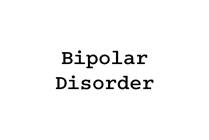
Condition
Bipolar Disorder
Bipolar disorder, formerly known as manic-depression, is a chronic mental illness that causes extreme mood swings from high to low.

Condition
Anxiety and Worry
Anxiety is a normal emotion. It can cause feelings of fear, tension and worry. It can also cause physical changes in the body.

Condition
Polycystic Ovary Syndrome (PCOS)
This Helping Hand™ about polycystic ovary syndrome (PCOS) explains how cysts on the ovaries can affect hormone balance, periods, and more.

Condition
High Cholesterol
Cholesterol is a fatty yellow substance. It is made by your liver from the fats, carbohydrates and proteins in the food you eat. Learn more from Nationwide Children's.

Condition
Irritable Bowel Syndrome
This Helping Hand™ covers irritable bowel syndrome (IBS) which is a common disorder that affects the large intestine (colon). Symptoms are caused by changes in how the GI tract works. IBS is a group of symptoms that occur together, not a disease.
Article
Calvarial Vault Remodeling
Calvarial vault remodeling (CVR) refers to a surgical procedure used to reshape the bones of the skull when they are misshapen due to craniosynostosis. Fronto-orbital advancement (FOA) refers to advancing the forehead and eyebrow region forward in patients in whom those regions are recessed.

Blog
Our Top 10 Blog Posts of 2024
We like to look back at our most popular posts from 700 Children’s! Without further ado, here are the most-read articles from our team in 2024.
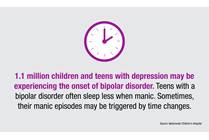
News
Experts Note Children with Mental Health Disorders May Be More Sensitive to Daylight Savings Time Change
Physicians at Nationwide Children’s Hospital say they notice several changes in sleeping patterns around daylight savings time, which can particularly affect patients with a mental health diagnosis.

Article
Feeding
Join the series as we explore symptoms, causes, and treatment options for feeding difficulties and enhance access to care within local communities.
Article
Orthognathic Surgery
The purpose of orthognathic surgery is to reposition the upper jaw, the lower jaw or the chin. There are several procedures that fall under the category of orthognathic surgery including LeFort 1, bilateral sagittal splint osteotomy (BSSO) and genioplasty. Two or three operations may be combined.

Condition
Substance Use Disorders
When a person loses control and misuses a substance like alcohol or drugs, it can become a harmful habit. This is called substance use disorder.

Condition
Duchenne Muscular Dystrophy (DMD)
Duchenne muscular dystrophy (DMD) is a rare condition defined by worsening muscle weakness and damage. It is the most common inherited neuromuscular disorder that affects all races and ethnicities. DMD only affects males and children with DMD may lose the ability to walk as early as 7 years of age.

Condition
Pelvic Pain
Pelvic pain is considered pain in the lowest part of your abdomen. Acute pelvic pain is pain that is present for less than three months. Chronic pelvic pain is persistent and presents for six months or greater.
Article
Complex Behavior Program
Our Complex Behavior Program provides caregivers and providers with effective strategies to help children reduce their dangerous or problematic behavior patterns and build coping skills.

Specialty
Velopharyngeal Dysfunction Program
The Velopharyngeal Dysfunction (VPD) Program at Nationwide Children’s Hospital provides coordinated interdisciplinary diagnostic and treatment services for patients with speech disorders resulting from velopharyngeal dysfunction. It is the only program of its kind in central Ohio.

Blog
The Dangers of Self-Diagnosing Your Mental Health
With today’s technology and social media, it is easier than ever to find and spread mental health information. The good news is this has led to more mental health awareness, and more people are willing to talk about mental health.
Article
Tonsillectomy and Adenoidectomy
What to expect before and after your child has adenoid and tonsil surgery.

Blog
Kids, Sleep and Daylight Saving Time: What Parents Need to Know
Children with mental health conditions may be more sensitive to time changes than the typical child or teen. This can be the direct result of the condition itself or the medication they take due to their condition.
News
Childhood Apraxia of Speech Cases on the Rise
Speech pathologists at Nationwide Childrens Hospital report an increasing number of patients diagnosed with childhood apraxia of speech, a motor speech disorder in which children have difficulty saying basic sounds and words.

Blog
Menstruation in Adolescents: The Importance of Using Menses as a Vital Sign
Adolescence is a time of many new things – including puberty changes and the onset of menstruation. A first period can be an exciting experience, but one that may cause some anxiety for young women and their caregivers.
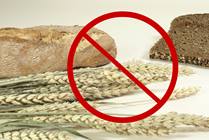
Blog
Should Your Children Avoid Gluten?
Parents often have questions about whether their child should avoid gluten, as many people have chosen this diet in the belief it has health benefits. For people with celiac disease, eating gluten free is not just a “fad” diet.
News
Study Finds GERD Less Likely Cause of Fussiness in Irritable Infants
In a new study published in The Journal of Pediatrics, researchers in the Abigail Wexner Research Institute at Nationwide Children’s Hospital have found that high-risk infants who express irritability and arching of their backs likely are not suffering from gastroesophageal reflux disease (GERD).
News
Kids Headaches, Migraines Increase as New School Year Begins
As children and teens begin school again, they are more susceptible to the pain and discomfort of headaches and migraines. The change in schedule, new teachers, new friends and schoolwork can increase stress and consequently, increase headaches.

Condition
Physical Abuse
Physical abuse is any act that results in physical injury to a child or adolescent. Physical abuse is the second most common form of child maltreatment.

News
Children Hospitalized for Injuries Have Increased Mental Health Needs
A study, published in The Journal of Pediatrics, looked at children ages 0-18 years who were hospitalized for unintentional injuries from June 2005 through May 2015. Researchers found that children hospitalized for an injury had on average a 63% increase in mental health diagnoses and a 155% increase in medications prescribed to treat a mental illness.

Specialty
Rumination Syndrome Program
The Rumination Syndrome Program requires a referral from a pediatric gastroenterologist.

Blog
How Much Food is Just Right? A Handy Guide to Portions
Are you trying to figure out what and how much to feed your child or adolescent? How much food they need will vary as they grow and depending on their activity level.
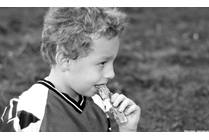
Article
Sports Nutrition
Sports Nutrition is becoming increasingly popular in the realm of athletics. Coaches, athletes, and parents alike are realizing the importance of a diet adequate for sports performance and training.

Condition
Type 1 Diabetes
Type 1 diabetes, formerly known as juvenile diabetes, is a chronic condition that occurs when your body makes little to no insulin. Insulin is a hormone that is made in the pancreas and keeps blood glucose (sugar) at a normal level.

Condition
Rett Syndrome
Rett syndrome affects the way the brain develops. This rare condition causes children to lose language and motor skills starting around age 6 to 18 months.
News
Study: Adenotonsillectomy May Help Resolve Obstructive Sleep Apnea in Children with Prader-Willi Syndrome
Children with Prader-Willi syndrome may receive relief from sleep disorders after undergoing an adenotonsillectomy, suggests a new study from Nationwide Children’s Hospital published in the November print issue of the Archives of Otolaryngology-Head and Neck Surgery.

Blog
Autism and Sleep: Setting Up Routines for Bedtime Success
Everyone needs sleep, but getting enough sleep can be hard. Sleep problems are especially common in children with autism spectrum disorder (ASD). Here are ideas that may be helpful for improving sleep in children with ASD.

Adolescent Medicine Fellowship
The Adolescent Medicine Fellowship prepares fellows for a career in adolescent medicine in a variety of clinical and academic settings, with three-year training for pediatric applicants and two-year options for those trained in internal or family medicine.
Article
Our Clinics
Massage Therapy maintains clinics on the main campus of Nationwide Children’s Hospital and at other locations in Ohio.

Blog
Recreational Cannabis (Marijuana): How Does This Impact My Children?
In 2024, Ohio is on track to see a 49% increase in edible marijuana exposures in children from 2023. This is a significant increase, but one that was expected given the legalization of recreational cannabis in Ohio.
Slipped Capital Femoral Epiphysis (SCFE)
Slipped Capital Femoral Epiphysis (SCFE) is a hip disorder that involves the epiphysis (eh PIFF I siss). This is the growing portion or ball on the top part of the femur (thigh bone).
Article
Behavioral Health Careers
By bringing together a team of professionals from many disciplines, behavioral health team members work together to determine the best treatment options for each child.

Blog
What Pregnant Moms Can Do to Keep Baby Healthy
Since more than half of pregnancies are unplanned, people who were assigned female at birth and are of reproductive age should take at least 400 micrograms of folic acid every day to help decrease the risk of neural tube defects.

Blog
Does My Irritable Baby Have GERD?
A lot of times, babies who arch their backs and are irritable are diagnosed with gastroesophageal reflux disease (GERD), based on these behaviors alone.
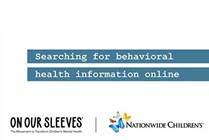
eTeen Mental Health
In today’s world, everyone uses the Internet. It’s a good way to find quick answers to our questions. Here are some tips for finding information about your mental health online!

Condition
Chronic Constipation
Many kids will experience occasional bouts of constipation during their childhood. Chronic constipation is a slightly different, yet much more challenging condition to treat.

Condition
Amenorrhea
Amenorrhea is when a girl or woman does not have her period. Primary amenorrhea is when periods have not started by age 16. Hormone levels and anatomical problems can cause amenorrhea.
Article
Behavioral Health
The Behavioral Health Learning Library (BHLL) is a collection of free, interactive and on-demand courses for professionals.

Specialty
Preventive Cardiology Clinic
The Preventive Cardiology Clinic believes in focusing on family education to help children live a more heart-healthy lifestyle.

Specialty
Comprehensive Pediatric Feeding and Swallowing Program
The Comprehensive Pediatric Feeding and Swallowing Program offers a variety of services, including evaluation and an intensive feeding program, for children who are diagnosed with feeding difficulties.
Article
Upper Endoscopy With General Anesthesia
This Helping Hand™ is about how a doctor or health care provider uses an upper endoscopy to look for signs of redness, swelling, bleeding, ulcers, or infections.

Specialty
Neurogastroenterology and Motility Disorders Center
Neurogastroenterology and Motility Disorders Center guides families through the challenges of GI motility disorders with expert care and answers that make a difference.

Blog
Polycystic Ovary Syndrome: What Is It?
Polycystic ovarian syndrome – or “PCOS” – is a hormonal imbalance that happens in some girls and women. In PCOS, testosterone, a type of hormone, is higher than normal.

Blog
Young Blood Donors: What You Need to Know
Donating blood is a personal decision. Blood donations help save lives and benefit people of all ages. Here are some things you need to know if you are thinking about donation.

Specialty
Psychology
Pediatric Psychology experts provide care to children who have a brief or long-term medical condition. Behavior assessments and intervention services for children and their families helping in learning positive coping skills and ways to manage their physical condition.

Blog
Short Bowel Syndrome: Causes, Treatment, and Diet
Short bowel syndrome is a condition in which the small bowel or intestine is too short to do all the things it is supposed to do to keep a child healthy and growing. Short bowel syndrome is most commonly due to a surgical resection which occurs early in life but can occur at any time and the causes are variable.
Article
Gastric Pacemaker
Gastric pacemaker is an advanced therapy to treat patients with gastroparesis when other standard treatments have not worked.

Blog
Benefits of Massage Therapy for Children
Your young ones are more active than ever, in mind and in body. Teaching them to manage stress and body awareness while they are young can help prevent a lifetime of chronic pain and poor habits.

Hemophilia
Hemophilia is an inherited blood disorder. In hemophilia, a blood clotting factor is missing. In Hemophilia A, Factor VIII (8) is missing. In Hemophilia B, Factor IX (9) is missing. Without these factors, blood will not clot well. People with hemophilia are born with the disorder. It is not contagious.
Article
Psychosocial Services
When a child is born with a cleft lip and/or palate or any craniofacial condition, the emotional health and well-being of the child and family are just as important as the child’s medical care.

Blog
Kids and Self-Injury: What Parents Need to Know
Self-injury is the act of physically hurting oneself without the intent to die. It is a sign of emotional distress and indicates a person has a lack of healthy coping skills. The most common forms of self-injury are cutting, burning, or scratching the skin and bruising the body tissue.

Blog
When Texture Is Tricky: Tips for Helping Your Child Overcome Food Texture Sensitivities
Navigating the nuances of feeding your child can sometimes be tricky, but for some families, the transition to solid foods can be particularly challenging. Some children have difficulty progressing from formula or human milk to pureed solids (like baby food) and beyond.

Condition
Velopharyngeal Dysfunction (VPD)
Velopharyngeal dysfunction (VPD) is the inadequate separation of the oral and nasal cavities during speech and/or swallowing. At Nationwide Children’s Hospital, our experts in the Velopharyngeal Dysfunction Program provide specialized treatment for patients with speech disorders resulting from VPD.

Blog
Spasticity: How to Treat Muscle Tightness and Pain
Spasticity is a muscle control disorder. It causes tight or stiff muscles and an inability for people to control certain muscles. This can make it hard to walk, get dressed or even speak.

Blog
Are Plant-Based Diets Safe for Kids?
No matter the reason, hearing a child say “I want to go vegetarian!” strikes fear in the hearts of many parents.
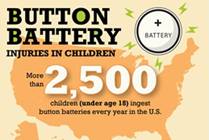
News
Ingesting Honey After Swallowing Button Battery Reduces Injury and Improves Outcomes
A team of ear, nose, and throat (ENT) specialists has demonstrated that eating honey after swallowing a button battery has the potential to reduce serious injuries in small children.
News
Nationwide Childrens Hospital Appoints Steven C. Matson, MD, Chief of Adolescent Medicine
Steven C. Matson, MD, has recently been appointed section chief of Adolescent Medicine at Nationwide Children’s Hospital and division chief at The Ohio State University College of Medicine, effective December 2014. Dr.

Blog
4 Things Parents Should Know About Weighted Blankets
Weighted blankets may be showing up on your social media feed as the “next best thing.” However, there are some things you should know before trying a weighted blanket for someone in your family.

Blog
Ferritin Testing: What Parents of Young Athletes Need to Know
Iron deficiency is a common problem; athletes need more iron than non-athletes and when they don’t get it, performance can decline. Some parents are using ferritin testing to make sure their young athletes are on the right track.
Article
Nichole Michaels Lab
Nichole Michaels, PhD Principal Investigator Nichole.Michaels@NationwideChildrens.org Nichole L. Michaels, PhD, is a Principal Investigator in the Center for Injury Research and Policy at the Abigail Wexner Research Institute at Nationwide Children’s Hospital and an Associate Professor in the
Article
Training Opportunities
Nationwide Children's Hospital offers 9 unique fellowship experiences related to pediatric psychology.

Condition
Suicidal Behaviors
Suicidal thoughts and behaviors can affect children and teenagers. Most children and adolescents who attempt suicide show warning signs. It is vital that families are aware of these signs and discuss concerns, ideally prior to a life-threatening mental health crisis.

Article
Adolescent Medicine
Join the series as we provide education regarding adolescent medicine through a free virtual learning network for community providers.
Article
Headache Causes and Advice
Learn how adults can help children make changes to decrease or get rid of headache triggers.
Article
Marijuana
Marijuana (also known as cannabis, weed, or pot) is the leaves, stems, seeds, and dried, crushed flowers of a cannabis plant. There are over 100 chemicals in the cannabis plant called cannabinoids. The most common cannabinoids are THC and CBD.

Condition
Vitamin D Deficiency
This Helping Hand™ covers vitamin D deficiency. Vitamin D keeps our bodies healthy and builds strong bones. It does this by helping the body absorb calcium and phosphorous from foods and supplements. If your child has a vitamin D deficiency it means they do not have enough vitamin D in their body.

Specialty
Cardiac Neurodevelopmental Outcomes Program
The Heart Center’s Cardiac Neurodevelopmental Outcomes Program (CNOP) evaluates children with congenital heart disease who are at a higher risk for developmental delays or concerns and helps them reach their full potential.
Article
Mandibular Distraction Osteogenesis
Mandibular Distraction Osteogenesis (MDO) is a surgery done for infants with Pierre Robin sequence. MDO lengthens the jaw to help open the airway so the baby can breathe safely and comfortably on their own.
Article
Colonoscopy with General Anesthesia: Infants and Toddlers
This Helping Hand™ is about how colonoscopies are done, how to prep for one, and what to expect for infants and toddlers.

Condition
Vocal Fold Nodules
Vocal fold or vocal cord nodules are small, non-cancerous growths on your child’s vocal cords. They are often caused by voice abuse. Over time, your child’s repeated misuse of the vocal folds results in soft, swollen spots on each vocal fold.

Blog
Food Fight: Battle Against Anemia
I’ve never been anemic (as far as I know), but when I found out I was pregnant last winter, I rushed out to buy prenatal vitamins with a hefty dose of iron.
News
Pacemakers Used to Help Children with Stomach Problems
Physicians at Nationwide Children’s Hospital in Columbus, Ohio are turning to a device typically used in adults with heart problems to help children with severe stomach conditions.

Condition
Persistent Diarrhea & Malabsorption
Diarrhea lasting more than seven days is considered persistent, while less than seven days is acute. Diarrhea that lasts more than 30 days is chronic. Toddler's diarrhea is caused by a diet low in fat and high in sugar and fluids. Malabsorption is the inability to use the food the body takes in.

Condition
Non-Alcoholic Fatty Liver Disease
Non-alcoholic fatty liver disease (NAFLD) is the most common chronic liver disease in American children. NAFLD occurs when too much fat builds up in the liver. Excess fat in the liver and elsewhere in the body makes it harder for the liver to work well. Over time, NAFLD can cause other health issues.
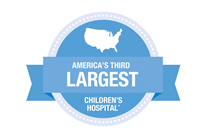
Article
Fast Facts
Our mission. Our vision. Our locations. Our leadership. Learn the facts about Nationwide Children's Hospital.

Blog
Pediatric Spinal Anesthesia: An Alternative to “Going Under”
Spinal anesthesia is an alternative to general anesthesia, which allows your child to undergo their surgery without being put into a drug-induced sleep.

Sleep Terrors and Sleepwalking
Sleep terrors and sleepwalking are related disorders of sleep that usually go away by the teen years. Sleep terrors are not the same as nightmares. Nightmares are bad dreams the child often clearly remembers the next day.
Article
Colonoscopy with General Anesthesia: Children (44 to 88 Pounds)
This Helping Hand™ is about how colonoscopies are done, how to prep for one, and what to expect for children.
Article
Colonoscopy with General Anesthesia: Teens and Adults (Over 88 Pounds)
This Helping Hand™ is about how colonoscopies are done, how to prep for one, and what to expect for teens and adults.
Article
Crerand Lab
The Crerand Lab studies psychosocial outcomes such as body image in children and adolescents with acquired and congenital medical conditions, including craniofacial conditions and differences of sex development. Learn more about principal investigator Canice E. Crerand, PhD, and her dynamic team in the Crerand Lab.

Specialty
Eosinophilic Esophagitis (EoE) Program
The Eosinophilic Esophagitis (EoE) Program at Nationwide Children’s Hospital provides state-of-the-art care for the unique needs of children of all ages diagnosed with EoE.
Article
Clinic Visits
The American Diabetes Association (ADA) recommends that every 3 months anyone with diabetes should be seen by a healthcare provider who can help manage diabetes. This chapter will help you make sure you are ready for each appointment.

Blog
Early Sports Specialization: Does Benefit Outweigh Risk?
Early sports specialization is when a young athlete chooses a single sport to practice and play exclusively. This usually occurs prior to elementary or middle school, is nearly year-round, and is an attempt to gain early skills.

Blog
Limiting Your Child's Screen Time
Raise your hand if you’ve ever seen a family of four out to dinner, table silent, each person looking down, scrolling through content on a handheld screen. Now raise your hand if you’ve ever been a member of that family. Yeah… me too… and I’m not exactly proud of it.
Article
Curriculum
Our Sports Medicine is built on a broad curriculum that gives our fellows the opportunity to practice in different fields. Learn more about our curriculum.
Velopharyngeal Dysfunction (VPD)
This Helping Hand™ covers velopharyngeal dysfunction, or VPD, occurs when the soft palate cannot separate the back of the mouth from the nose during speech, swallowing, or both. VPD can be caused by structural differences in the soft palate and pharynx, or muscular causes.
Article
Resources, Tips and Tools
Use these tips and resources when conducting PREP youth workshops or if you need to refer a youth for further services.

Blog
3 Tips for Managing Chronic Pain
When bellyaches or other pain won’t go away, learn gentle, practical steps—sleep, movement, relaxation, and coping skills—to help your child live fully despite chronic pain.

Condition
Failure to Thrive
Failure to thrive (FTT) is a term that is traditionally used for children who have failed to develop and grow normally. FTT occurs when a child is either not receiving enough calories or is unable to properly use the calories that are given, resulting in failure to grow or gain weight.
Abusive Head Trauma
Abusive head trauma (AHT), formerly called Shaken Baby Syndrome, is a form of child abuse.
Article
Multi-View Videofluoroscopic Speech Study (MVSS)
A multi-view videofluoroscopic speech study, or MVSS, is a procedure to see how the palate functions during speech. It is basically an x-ray movie taken while the child talks.
News
Cure SMA Provides Additional Funding for Promising Spinal Muscular Atrophy Research at Nationwide Childrens Hospital
Cure SMA, the leading organization dedicated to the treatment and cure of spinal muscular atrophy (SMA), recently provided an additional $445,000 grant toward a gene therapy for SMA at Nationwide Children’s Hospital.

Blog
Sleepwalking and Talking: What You Need to Know
We know sleep is important for everyone – especially children as they continue to grow and develop. But does your child walk in their sleep? Or maybe talk in their sleep? Is there a reason to be concerned about sleepwalking and sleep talking?
News
MEDIA ADVISORY: The Butterfly Run
COLUMBUS, Ohio – Nationwide Children’s Hospital is introducing The Butterfly Run, a 5k and Kids “Fun Dashes” sponsored by the Big Lots Foundation.
Article
Artomov Lab Staff
Learn more about principal investigator Mykyta Artomov, PhD, and his dynamic team in the Artomov Lab.

Blog
11 Period Myths and Facts
Period talk is everywhere, but how do we separate fact from fiction? Here, we breakdown the top 11 myths about periods.
Pavlik Harness
Does your child wear a pavlik harness? This Helping Hand can aid you in day to day activities with your child in a pavlik harness.
Article
Sphincter Pharyngoplasty Surgery
Sphincter pharyngoplasty is a surgery done to help correct velopharyngeal dysfunction, or VPD.

Blog
Self-Care for Parents of Children with Mental Health Needs
While no parent would choose for their child to have a mental illness, facing this reality head on helps families realize what life experiences are truly important and how to create satisfaction and meaning in their everyday lives.

Condition
Alagille Syndrome
Doctors in the Pancreas and Liver Care Center can help treat Alagille syndrome, a genetic disorder that primarily involves a mutation in the gene called JAG1. It affects one in every 30,000 to 70,000 live births and can involve multiple organ systems including the liver, the heart, bones, eyes, kidneys, pancreas and brain.

Condition
Jaundice in Children
Jaundice is a common condition in newborns that occurs when a yellow pigment (bilirubin) cannot be removed from the body fast enough and levels in the blood become too high. The buildup of bilirubin causes the skin and the white part of the eyes to appear yellow. Most cases clear without treatment.
Article
News and Announcements
Stay up to date with the latest news coming out of the Office of Technology Commercialization.

Condition
Encephalocele
Encephalocele is a rare congenital condition where the neural tube does not close and causes a sac-like bulge with brain tissue and spinal fluid that pokes through the skull. Encephalocele is often found during a prenatal ultrasound. Treatment depends on the location of the encephalocele on the skull.

Condition
Epilepsy
Epilepsy is a neurological condition involving the brain that makes people more susceptible to having recurrent unprovoked seizures. The two broad categories of epileptic seizures are generalized and partial seizures.

Condition
Seizures and Epilepsy in Children
A seizure occurs when part(s) of the brain receives a burst of abnormal electrical signals that temporarily interrupts normal electrical brain function.

Condition
Omphalocele
An omphalocele is an abdominal wall defect that allows the intestine to remain outside the abdomen. An omphalocele can contain parts of the intestine, liver and other organs. The goal of surgery is to place the abdominal organs back into the baby’s body and repair the defect in the wall of the belly.
Article
Poison Prevention Tips
Keep your family safe from accidental poisonings. Check out our general safety tips, as well as medication and household tips.
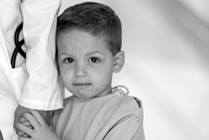
Specialty
Pancreas Care
Our center provides comprehensive multidisciplinary care for patients suffering from diseases of the pancreas. Our multidisciplinary team focuses on treating the patient as a whole to achieve the best possible outcomes and quality of life.
Article
NASPGHAN
Nationwide Children’s Hospital is proud to support NASPGHAN. Meet our faculty members that are active with the organization.
Article
Lab Team
Jennifer Hughes, PhD, MPH Clinical Psychologist & Principal Investigator Jennifer.Hughes@nationwidechildrens.org Jennifer Hughes, PhD, MPH, is a principal investigator in the Center for Suicide and Prevention Research (CSPR).
Article
Seizure Information for Parents
Your child had a seizure. What do you do now? Learn more about safety, treatment and tips on living with seizures and epilepsy.

Condition
Fecal Incontinence
Fecal incontinence is a very common problem in children. Soiling can be caused by medical conditions like chronic constipation or congenital conditions that may disrupt bowel control.

Article
Physician Careers
Nationwide Children’s Hospital is always looking for excellent board certified and board eligible pediatric physicians to join our Medical Staff.

